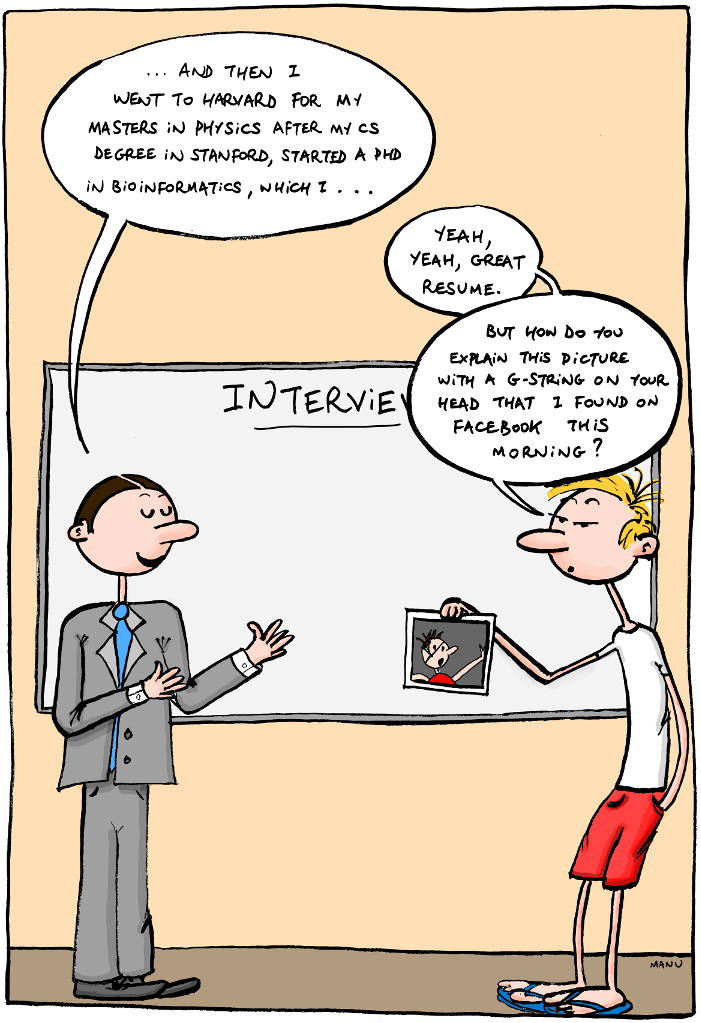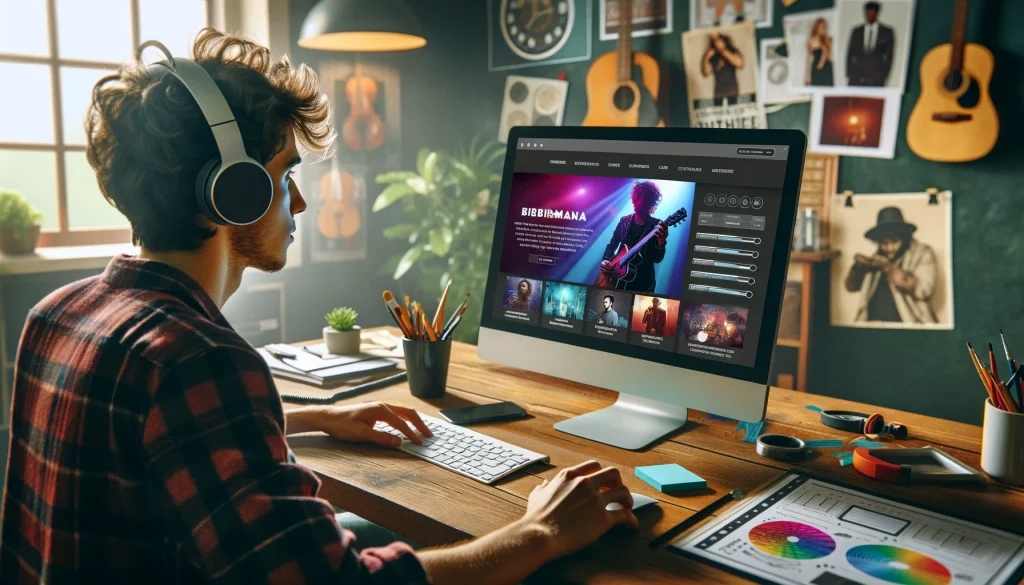Interviews are a tricky landscape. While in auditions, people are generally rooting for you to succeed, interviews can be a little different. When a company hires you, it’s not just for one gig; it’s ostensibly forever. So while you’re trying to show the best version of yourself, their goal is often to try to see the worst of you.
Questions to Prepare
The Big 3
Most interview questions broadly fall into three categories:
- What You? What makes you special and why should they hire you over other qualified candidates?
- Why Us? Why do you want to work for them and why are you and the company good matches for each other?
- Are You Good to Work With? Employers will try to get a sense of your personality and how you manage stress in the context of the interview, including through Behavioral Interviewing techniques.
Here are some specific questions for which you should prepare:
“What Do You Do?”
This question may come up in some form in an interview, but is likelier in general networking. “What do you do” should prompt you to deliver your so-called “elevator speech.” If you have 30 seconds on an elevator with a promising professional contact, what do you want to tell them about yourself? Use this as an opportunity to brand yourself (more on that below), to speak of an accomplishment without it sounding like bragging, and to talk about career aspirations. Practice doing this in 30 seconds. Yes, you must really practice this, but be careful that it doesn’t sound over-rehearsed.
“Tell Me About Yourself”
Use this as an opportunity to brand yourself (more on that below), talk briefly about your most recent position (possibly including 1-2 accomplishments without sounding like you’re bragging), discuss your career history (optionally, explain your reasons for leaving), and close with your goals for the future. Practice doing this in 90 seconds. Again, you must practice this, but be sure that it doesn’t sound over-rehearsed. It’s also good to have a 30-second version of this prepared. Try to read the room to get a sense of what length response would be appropriate.
“Why Did You Leave Your Last Job?”
Be prepared to answer this question honestly, succinctly, and without insulting your last employer.
“Why do you want to work here?”
Questions of this sort focus on why you’re applying for this job at this particular company. (College applicants should likewise be prepared to speak about why they want to attend that particular school.) Be sure to do your research in advance and be prepared to speak about the company. Be careful not to tell them about why their company is so great. You want to position yourself within that company, so instead, speak about in what ways this position and this particular company are suited to you and in what ways you are particularly suited to this position and company.
“What do you see as your strengths and weaknesses?”
You may be asked to share what you view as your strengths and weaknesses. This is a tricky question, so it’s one you should prepare. A lot of us are very self-critical, but this isn’t the time to excoriate yourself. On the other hand, attempts to reframe strengths as weaknesses usually read as transparent to interviewers too. One strategy you can try is to focus on an weakness you’ve mostly resolved. Be sure to frame it in time (e.g., “When I first started teaching…) to distance yourself from it. You can also talk briefly about how you’ve addressed it, how far you’ve come, and what you do now to continue to improve or stay on top of it.

“Do you have any questions for us?”
In most interviews, they’ll likely ask you at the end if you have any questions for them, so be prepared with some that show you’re prepared and invested in what they do. Don’t ask questions you could look up online. Do your research first and use this as an opportunity to show them that you understand their company and are enthusiastic about the position.
Expected Salary
You may also be asked about expected salary, so you may want to research how much they pay generally, so you don’t undersell yourself or overreach.
Behavioral Interviewing
Most employers these days engage in behavioral interviewing techniques, where they try to stray from the usual questions and really get a sense of your character. (See sample questions here.) Read up on these questions to get used to them and think about how you might answer them. Try to quantify your examples (i.e., give specifics and numbers to back up what you’re saying). Be prepared, in particular, to answer questions about negative situations. Have examples ready of negative experiences that you made the best of or, better still, that had positive end results. Try to state things directly in terms of what the situation or problem was, what actions you took, and what the results were.
General Interviewing Advice
Branding Yourself
It’s helpful to walk into an interview with a few key words in your head that really make you unique. You can try to work them into the interview when it is appropriate. Make sure your claims are believable, memorable, and compelling. Find that fine line where you sell yourself without sounding pompous.
Dress for the Interview
Dress well for the interview. It’s safer to over-dress than under-dress. For academic jobs, you should dress in business formal. (Also, see “Dressing for Success” on the resources page.)
Practice for the Interview
Have a friend ask you questions or use sample questions from online. Try dressing for the interview, sitting in front of a camera, and answering them. Watch it and see what you’d like to improve. When you rehearse interviewing, practice using a real job posting to help you imagine the kinds of questions you’d like to be asked and how you’d like to target your responses.
Be Specific and Stay on Topic
Be sure to be specific, concise, and on topic with your responses. Answer the questions that they ask you thoroughly and concisely without wandering too far afield. This is a skill you can cultivate with practice.
Avoid Overselling or Underselling
This is one of trickiest things in an interview. You want to really help them see how awesome you are, but don’t oversell yourself. Interviewers notice when people read as arrogant or are inflating their accomplishments. In music, experienced musicians tend to talk humbly; amateurs tend to inflate and overestimate their accomplishments. Listen to your practice videos and think about how you could rephrase to strike this balance. One common mistake that novice musicians make is to overestimate their accomplishments without realizing it. For instance, I’ve often heard young musicians say, “I learned the guitar last year.” Real guitarists dedicate their lives to it; only amateurs act as though you can “learn it” in a year. Rephrase this as, “I started learning the guitar last year.”
What Image Do You Project?
When preparing for the interview, watch your video of your interview. Do you have good eye contact and posture? Do you project enthusiasm, warmness, and confidence? Do you fidget or have a lot of verbalized pauses (uh, er, um, you know, like, etc.)? Are you engaged, relaxed, and clear? Does your speech sound controlled and well delivered? Are your answers to the point and did you answer the question being asked? Are your thoughts organized?
Taking Notes
When you’re about to start the interview, you can ask the interviewer if it’s OK for you to take notes as you speak. Don’t take so many notes that you fail to engage with those interviewing you, but this can be an opportunity to jot down a few key words to remember the questions they’ve asked you. It’s easy to get lost in the weeds of an answer to a question, and this can help refocus you and double-check that you’ve answered the question before you conclude.
Harnessing Social Media and Websites
Use social media and websites to research companies and see how they present themselves. Also look at how you appear in your public social media profiles and website. Is it an image you’d want this company to see? Are your profiles complete, accurate, up-to-date, and positive in the images they project? Google search yourself to see what turns up and do some quality control on your web presence. Take down posts, pictures, and videos that make you read as unprofessional. Employers not regularly google search and facebook stalk their employees.

The First Impression
You have very little time to make a first impression. Some recruiters say you have 30 seconds, but studies suggest that an initial impression happens in a fraction of a second. Most writers suggest that you have about 7 seconds before an initial impression is formed. If it’s a good one, you have a clear path ahead; if it’s a bad one, you’re starting with a deficit (but not an insurmountable one). Here are some tips to a good first impression (for further reading, check out this article):
- Be warm when you first enter. Greet everyone and smile.
- Shake hands, unless there are so many people interviewing you it would be awkward or impractical. Don’t make the mistake of identifying the “main interviewer” and only shaking his/her hand.
- Introduce yourself, being sure to speak clearly. You know your name very well; they don’t. Say it clearly.
- Maintain good eye contact. Look primarily at whomever asked you the last question.
- Wait to sit down until they ask you to or acknowledge where and when you should sit. If they don’t say anything, politely ask, “Should I have seat here?”
Don’t Self-Sabotage
Sometimes it’s hard to admit to ourselves how much we want a position. Fear that we won’t get it may lead you to self-protect by self-sabotaging your interview. That way, if you don’t get it, you can convince yourself it was due to a bad interview rather than them just not liking you for the position. Self-sabotage can take the form of not preparing well or not presenting well in the interview. Give every interview your all and do the hard work of grieving and not taking it personally if you don’t get a position.
Common Strikes Against You
- Low Energy: If you’re not excited about you, the interviewer won’t be either.
- Inappropriate Dress: Dressing inappropriately for the job or interview; wearing distracting clothing (again, see “Dressing for Success” on the resources page.)
- Reads as Low Confidence: People like to see confidence in others.
- Reads as High Maintenance or Uncharismatic: People want to work with those who are easy to get along with.
- Poor First Impression: See above.
- Makes Wrong Assumptions: Don’t make assumptions about the company, the people you’ll be working with, etc. You can use your research to make good assumptions, but be careful with what you assume beyond that.
- Cautionary Tale: A teacher I know once didn’t get a job interview specifically because he made assumptions about the students that were incorrect. He assumed that a problem he had had at other schools wouldn’t be an issue with the students at this school, and said he looked forward to these more serious students. It turned out that this school had had the same problem with its students and this became a deal breaker for the lead interviewer.
- You Ramble or Don’t Answer the Question: Be careful to stay concise and on topic. This takes practice.
- Not Ready for the Interview: If you don’t know about the company or can’t speak about why you’re applying and why you’re right for the job, you’re not ready for the interview. This is a major strike against you.
- Not Gracious: Be courteous during the interview. Don’t cut people off. Listen attentively. Take their questions seriously. Thank them at the end. Shake their hands before you leave.
Job Fairs
If you’ll be meeting people at job fairs, bring these with you: business cards, résumés, a portolio (no generic cover letter), a notepad and pens/pencils, your calendar to set up interviews, breath mints. (I also recommend keeping a change of professional clothes in your car in case you spill something on yourself.) Research the fair in advance to get a sense of who will be there. Be ready to give people a quick “tell me about yourself” response in about 30 seconds. Also be prepared to talk about your strengths, weaknesses, and interest in their company. Ask them for business cards.
Interview Dining
Some employers may take you out to dinner as part of your interview. This can be tricky to navigate well, but I recommend this article to help you. (Also available on the resources page)
Thank You Letter/Email
It is considered good etiquette to send a brief thank you letter or email following your interview.
Your Experiences
What are your best interview tips? What questions have you been asked at interviews which you wish you had better prepared? What have you learned by being on the hiring side of job interviews? Share your experiences below with a comment!
©2016 Aaron Alon. All Rights Reserved.











0 Comments